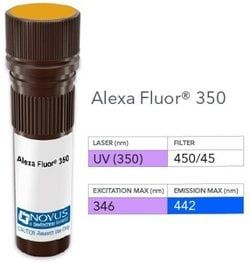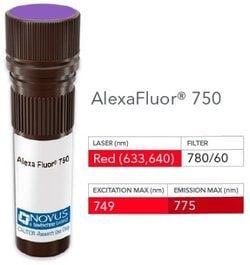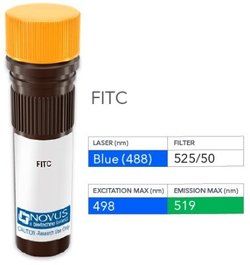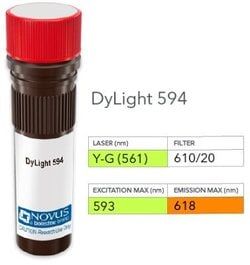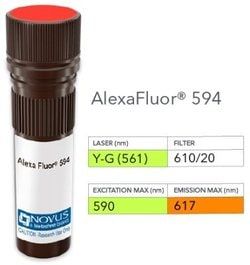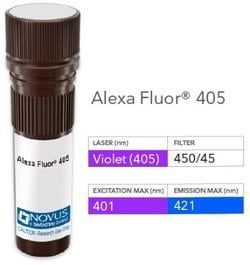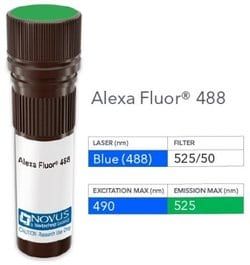CPS1 Antibody (SPM615), DyLight 594, Novus Biologicals™
Manufacturer: Novus Biologicals
Select a Size
| Pack Size | SKU | Availability | Price |
|---|---|---|---|
| Each of 1 | NB007503-Each-of-1 | In Stock | ₹ 55,847.50 |
NB007503 - Each of 1
In Stock
Quantity
1
Base Price: ₹ 55,847.50
GST (18%): ₹ 10,052.55
Total Price: ₹ 65,900.05
Antigen
CPS1
Classification
Monoclonal
Conjugate
DyLight 594
Formulation
50mM Sodium Borate with 0.05% Sodium Azide
Gene Symbols
CPS1
Immunogen
Recombinant human CPS1 protein (Uniprot: P31327)
Quantity
0.1 mL
Primary or Secondary
Primary
Target Species
Human, Canine
Isotype
IgG1 κ
Applications
Immunohistochemistry, Immunohistochemistry (Paraffin), Immunofluorescence
Clone
SPM615
Dilution
Immunohistochemistry, Immunohistochemistry-Paraffin, Immunofluorescence
Gene Alias
carbamoyl-phosphate synthase [ammonia], mitochondrial, carbamoyl-phosphate synthase 1, mitochondrial, carbamoyl-phosphate synthetase 1, mitochondrial, carbamoylphosphate synthetase I, Carbamoyl-phosphate synthetase I, CPSase I, CPSASE1, EC 6.3.4.16
Host Species
Mouse
Purification Method
Protein A or G purified
Regulatory Status
RUO
Test Specificity
This MAb recognizes a protein of 165kDa, identified as carbamoyl phosphate synthetase 1 (CPS1). This mitochondrial enzyme catalyzes synthesis of carbamoyl phosphate from ammonia and bicarbonate. This reaction is the first committed step of the urea cycle, which is important in the removal of excess urea from cells.Deficiency of CPS1 is an autosomal recessive disorder that causes hyperammonemia. CPS1 is a hepatocyte specific protein that localizes to the mitochondria of hepatocytes. It is a sensitive marker for distinguishing hepatocellular carcinomas (HCC) from other metastatic carcinomas as well as cholangio-carcinomas. HCC s occur primarily in the stomach, but they are also found in many other organs. CPS1 may also be a useful marker for intestinal metaplasia. Reportedly, strong expression of CPS1 correlates with smaller tumor size and longer patient survival. Occasionally, CPS1 is also found in gastric carcinomas as well as in a few other non-hepatic tumors.
Content And Storage
Store at 4°C in the dark.
Related Products
Description
- CPS1 Monoclonal specifically detects CPS1 in Human, Canine samples
- It is validated for Immunohistochemistry, Immunocytochemistry/Immunofluorescence, Immunohistochemistry-Paraffin, Immunofluorescence.

